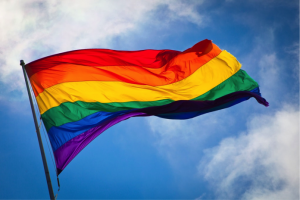not the end goal: marriage equality on long list of infringed LGBTQIA rights

Now that same sex marriage has been deemed legal on a constitutional level for all 50 states in America, eyes have turned to the Australian government’s continued refusal to recognise the right of same sex couples to marry. Fighting for marriage equality by the LGBTQIA community has been an ongoing effort here for a number of years, but with America’s recent decision, the ante has been upped. There is now enormous political pressure on our current government to follow suit and finally make it legal for same sex couples to marry.
Under the Universal Declaration of Human Rights article 16, everyone of full age has the right to marry and have a family irrespective of race, religion, or nationality, as long as the arrangement is consensual, and this union is to be supported by society and the State. Unfortunately, this declaration does not equal binding legislation, and it isn’t difficult for Australia to continue to engage in discrimination through its own laws.
Most states in Australia recognise same sex couples through civil unions, de facto status or a relationship register, which gives them access to some or all of the same legal advantages that come with marriage. Unfortunately though, these do not have the same cultural recognition, and many people do not believe the alternatives to be nearly good enough.
While marriage is certainly an area of inequality that needs addressing, it’s important not to lose sight of other inequalities faced by the LGBTQIA community in Australia. According to the 2015 report on Sexual Orientation, Gender Identity and Intersex Rights by the Human Rights Commission of Australia, there are a number of ways that the discrimination of this community continues in both a structural and legal sense. While there are federal and state laws directly addressing discrimination based on sexuality and gender identity, they vary greatly in terminology between the states and territories. There are also exemptions for religious organisations in all states except Tasmania, meaning they can deny access to their services at their own discretion.
Another part of the problem is the inconsistencies between states and territories in a number of legislative areas that impact the LGBTQIA community. In all states except NSW and Victoria, if you were charged with homosexual conduct before it became legal, it will remain on your record. Queensland’s age of consent laws state that one must be 18 years old to engage in anal sex, in contrast to 16 for vaginal sex. In every state except the ACT, South Australia and Western Australia, you must undergo sex reassignment surgery before you can legally change the name on your birth certificate. Same sex couples are still unable to adopt in Queensland, Victoria, the Northern Territory and South Australia, and same sex step parents cannot legally adopt their partner’s children in these states with the exception of Victoria. In Queensland and South Australia, the homosexual advance defence is still legally viable for murder, having charges downgraded to manslaughter.
To be clear: this isn’t to say that marriage equality isn’t important. What we need to remember, however, is that achieving equality in marriage isn’t the end goal. We need to see this as a springboard, a way to boost more recognition of the rights of LGBTQIA individuals and where there are gaps that need to be addressed. Continued structural and legislative discrimination directly impacts the health and happiness of the individuals who make up the LGBTQIA community, from poorer health outcomes, to an increased likelihood of experiencing mental illness. It is vital we stay on track to reducing this discrimination in all areas of life, not just in the institution of marriage.

